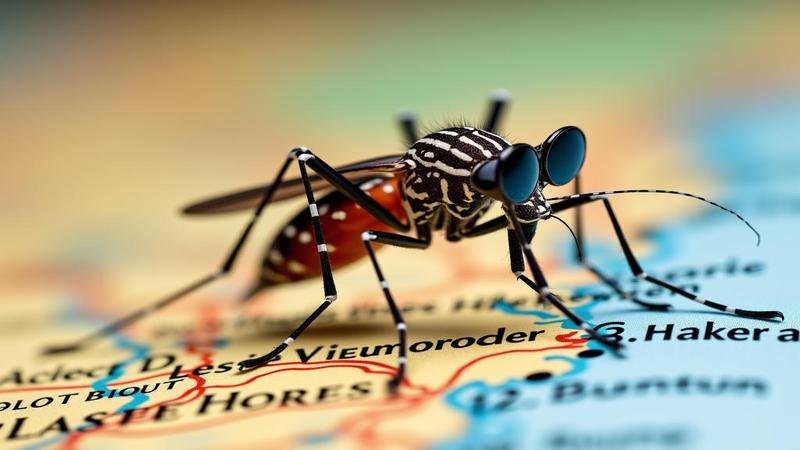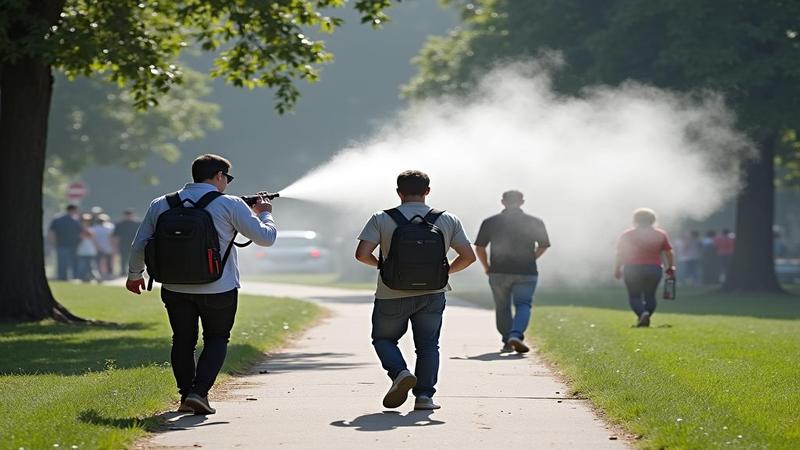Philly Sees West Nile Virus Return Tour, Mosquitoes Sell Front-Row Seats

In a move that sounds suspiciously choreographed by nature, the rates of West Nile Virus have begun climbing across the Philadelphia region. Health officials insist the uptick is real and not the city’s way of announcing a new season of outdoor life. Mosquitoes, it seems, have RSVP’d to a season one could call the ‘Nuisance Deluxe’ tour.
City doctors describe the trend as seasonal, slightly annoying, and entirely predictable, a phrase that now doubles as municipal weather folklore. They caution residents not to panic, and to panic in a measured, socially distant manner.
On sidewalks, in parks, and around every soggy planter, the tiny guests appear to be hosting a perpetual block party with zero RSVP list and questionable party favors. People practice basic science by swatting politely and hoping for a miracle.
Officials urge residents to remove standing water, apply repellent, and consider staying indoors at dusk when the buzzing chorus reaches its peak.
Local businesses report a sudden spike in insect-proofs and emergency-ointment sales, a trend economists will probably misinterpret as a boost from the outdoors. The city’s economy breathes a shallow sigh of relief with every drip of DEET.
Parents in suburban neighborhoods field questions from neighbors about whether the mosquitoes have unionized, or if this is just the first draft of summer. The answer remains: probably both, plus a dash of climate anxiety.
Scientists describe the data as a familiar tune with a louder chorus, a reminder that nature does not take vacations just because humans bought tiki torches. Researchers promise more data, and more reasons to avoid picnics near trash cans.
Public health officials remind residents that protection is a shared responsibility, and that arming themselves with the right gear may be the new civic duty. If you’re shopping for defense, try ‘best mosquito repellent 2024’ and pretend you are a fashionable war correspondent.
Store shelves are thinning of sprays, bands, and bracelets as demand spikes, while the city tries to regulate the sale of tiny caps for wings. Grocers report customers asking for a warranty on uninvited guests.
School nurses have introduced a new module titled ‘Anatomy of a Buzz’ to reassure students that the mosquitoes are not plotting a hostile takeover. The curriculum comes with a safety message: keep your hands away from your ankles.
Neighborhood watch groups have swapped crime alerts for insect alerts, because nothing says ‘community bonding’ like a weather app showing a mosquito icon. The alerts now include tips on staying calm when a mosquito insists on auditioning for your picnic.

Property developers are advertising mosquito-proof features as the next must-have, including ‘mosquito-proof window screens’ for every living room window and micro-silent traps that sound like a librarian.
Tourists planning autumn strolls brace for the same dilemma locals face: enjoy the outdoors or offer the mosquitoes a private balcony.
Scientists warn that climate factors may be extending the mosquito season, but the city treats the information like a dramatic cliffhanger in a soap opera. The data are parsed into press releases, tip sheets, and a dozen memes.
City leaders insist the response remains proportionate: public notices, health audits, and occasional press conferences where the mayor smiles through a chorus of winged critics. The press conferences now include a live demo of how to swat and diffuse awkward silences.
Memes about tiny vampires wearing badges flood social media, and real vampires reportedly keep a safe distance from the parks for fear of becoming extra crispy metaphor.
Some residents report that the uptick has reshaped outdoor spaces, turning picnic blankets into liability waivers and DEET into a fashion accessory.
Experts warn the real risk is complacency: ignore the problem long enough and the mosquitoes will take over the town square like a buzzing boardroom.
Meanwhile, local media adds spice by turning a simple test result into a dramatic cliff note, complete with weather-map style graphics that predict itchy futures.
Citizens are urged to stay vigilant and to treat the issue with the seriousness of a rain-delayed outdoor concert. The day-by-day reality now includes a ritual of checking sleeves, hats, and the air for vibrating signage.
By season’s end, officials hope to slow the trend and perhaps monetize the experience with a city-wide mosquito-awareness festival, provided the bureaucracy approves the permit for buzz banners.
Until then, Philadelphia residents adjust, improvise, and learn to small-talk with thousands of tiny, winged acquaintances who have opinions about everything except the weather.
